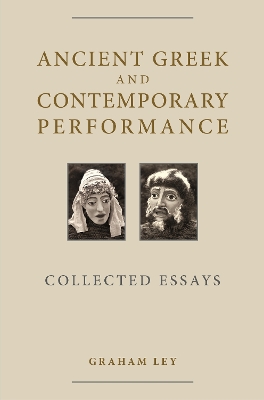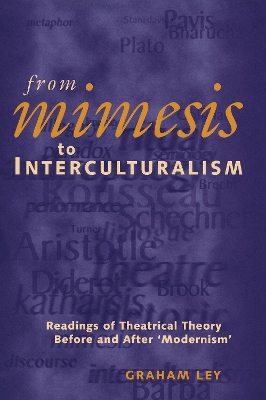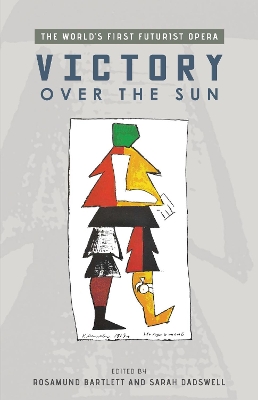Exeter Performance Studies
4 total works
Critical Essays on British South Asian Theatre
by Graham Ley and Sarah Dadswell
This volume is an edited collection of critical essays on British Asian theatre. It includes contributions from a number of researchers who have been active in the field for a substantial period of time.
This title is complemented by British South Asian Theatres: A Documented History by the same authors, also available from University of Exeter Press.
This collection of published and unpublished essays connects antiquity with the present by debating the current prohibiting conceptions of performance theory and the insistence on a limited version of 'the contemporary'.
The theatre is attractive for its history and also for its lively present. These essays explore aspects of historical performance in ancient Greece, and link thoughts on its significance to wider reflections on cultural theory from around the world and performance in the contemporary postmodern era, concluding with ideas on the new theatre of the diaspora.
Each section of the book includes a short introduction; the essays and shorter interventions take various forms, but all are concerned with theatre, with practical aspects of theatre and theoretical dimensions of its study. The subjects range from ancient Greece to the present day, and include speculations on the origin of ancient tragic acting, the kinds of festival performance in ancient Athens, how performance is reflected in the tragic scripts, the significance of the presence of the chorus, technology and the ancient theatre, comparative thinking on Greek, Indian and Japanese theory, a critique of the rhetoric of performance theory and of postmodernism, reflections on modernism and theatre, and on the importance of adaptation to theatre, studies of the theatre and diaspora in Britain.
From Mimesis to Interculturalism offers a series of critical readings of key texts in the history of European and American theatrical and performance theory. It answers the need for a detailed critique of theatrical theory from its origins in Greek antiquity to the present day, asking the reader to re-examine the basis of what have become assumptions, but are all too often perceived as truths. The book complements existing studies of the major modern theorists by giving close attention to the European tradition before Stanislavski, and to the theorists who have gained prominence after Grotowski. The use of language and the creation of meaning is the primary concern of all the readings.
Part One considers classical and classicizing theorists from Greece and the European enlightenment, and Part Two twentieth-century theorists after Grotowski; a concluding Part Three indicates how the approach might be applied to exemplary theorists from the modern canon, and to certain contemporary theoretical proposals.
The Futurist opera Victory over the Sun, first staged in 1913 in St Petersburg, was a key event of the Russian avant-garde, notorious for its libretto, its unconventional score and its pioneering abstract sets and costumes designed by Kazimir Malevich. The iconic importance of Victory over the Sun as a theatrical event is universally acknowledged.
This volume brings together the first fully annotated translation of the libretto of this 'anti-opera' and other important primary source materials, including the score, the set and costume designs and contemporary newspaper reviews. The second part of the volume provides a wide-ranging collection of interpretive essays which explore the artistic, literary and musical dimensions of the staging, its theatrical and historical context, its relationship to Italian Futurism, and its position within the Russian modernist movement.
You can read more about the Pushkin House event on 22 November 2012 on the Russian Art and Culture website by following this link http:// www.russianartandculture.com/victory-over-sun-book-launch-pushkin-house/ (will open in a new window).
And you can see and hear more in Alexander Kan's report on the BBC Russian site by following this link http://www.bbc.co.uk/russian/multimedia/2012/11/121127_futuristic_dinner.shtml (will open in a new window).
In 1913, the year in which the Romanovs celebrated their tercentenary, the premieres of two revolutionary theatrical events brought Russian artists to the forefront of the European avant-garde. With its nonsensical 'trans-sense' libretto by Aleksei Kruchenykh and Velimir Khlebnikov, experimental score by Mikhail Matiushin and pioneering abstract sets and costumes by Kazimir Malevich, the Futurist opera Victory over the Sun may be compared in terms of its radical assault on artistic convention to Igor Stravinsky's ballet The Rite of Spring.
This interdisciplinary volume brings together a distinguished team of international scholars to discuss the artistic significance of this epoch-making 'anti-opera', which is now recognised as a key event of avant-garde cultural production, and a turning point in stage history.
The book offers new insight into the theatre practice and history of Russian Futurist performance, which, to date, has received little attention from theatre scholars despite its influence on the development of European drama in the twentieth century.
As well as an annotated translation of the libretto, the book includes reproductions of the score and contemporary newspaper reviews.
Illustrated throughout, and with a colour plate section containing twenty-seven colour images of costume designs, posters and other work by the abstract artist Kazimir Malevich.



